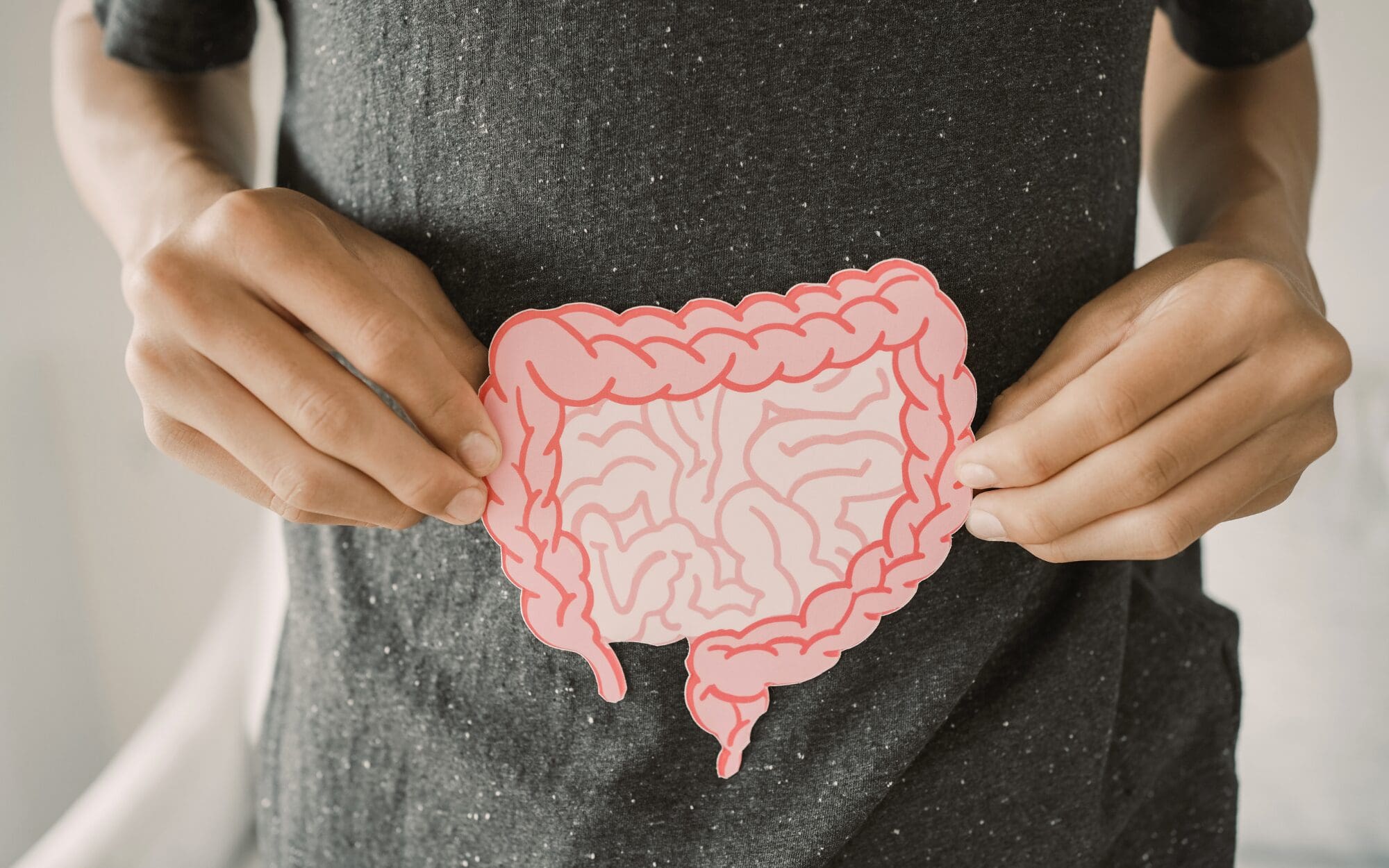Is Your Gut Triggering Your Anxiety? Understanding Bottom-Up Panic
Episode 112: Spotify | Apple Podcasts | YouTube
View transcript on Buzzsprout
Most people assume anxiety starts in the mind. A stressful thought sparks a racing heart, shallow breath, maybe even panic. But what if that sequence is sometimes reversed?
What if your anxiety doesn’t start in your brain—but in your gut?
Today’s episode was sparked by a listener’s message that shared that after doing a gut cleanse, they spiraled into anxiety and panic—and they weren’t sure why. They asked if anxiety could start from a physiological disruption, rather than psychological stress?
Spoiler: yes. And in this episode, Amanda breaks down how, why, and what to do about it.
*Resource mentioned: Healing Through the Vagus Nerve (see pages 40-41 for the gut-brain connection)
What We Cover in This Episode
- How the gut-brain axis influences your mental health
- Why your vagus nerve is a key player in this connection
- What gut disruptions can do to your mood and nervous system
- The difference between bottom-up and top-down anxiety
- Tools to support yourself when anxiety begins in the body
Gut-Brain 101
Your gut and brain talk constantly—via nerves, hormones, and immune signals. The gut even has its own nervous system (the enteric nervous system), which connects to the brain through the vagus nerve.
Here’s a wild fact: around 80% of the communication between your gut and brain travels from gut to brain. Not the other way around. That means what’s happening in your body can drive what’s happening in your mind.
So if your microbiome is disrupted—by antibiotics, stress, or yes, a gut cleanse—it can affect your brain chemistry, hormone balance, inflammation levels, and more. The result? You feel anxious, wired, or panicky…and you don’t know why.
What Bottom-Up Panic Looks Like
Bottom-up anxiety happens when physical changes in your body send danger signals to your brain, which then tries to make sense of them.
Maybe your blood sugar crashes. Or you’re mildly dehydrated. Or your microbiome shifts and inflammation increases. Your body sends a red flag—and your brain scrambles to assign meaning. Cue spiraling thoughts like:
- What’s wrong with me?
- Am I in danger?
- Why do I feel this way?
The nervous system’s job is to detect threat. But it doesn’t always get it right. That’s why physiological issues can trigger psychological panic.
Is It My Gut or My Thoughts?
Sometimes anxiety begins in the mind (top-down). Sometimes it begins in the body (bottom-up). Often, it’s both. The trick is figuring out your most common pattern so you can intervene earlier.
Amanda suggests asking yourself:
- Do physical symptoms show up before anxious thoughts?
- Do things like food, hydration, or movement help more than mindset work?
- Do I often wake up anxious, even when nothing stressful is happening?
If yes, your body might be the starting point. And that’s powerful information—it helps you find the right entry point for healing.
Why Cleanses Can Trigger Anxiety
That listener’s story? Totally valid. Gut cleanses, detoxes, and even helpful protocols can temporarily disrupt the microbiome and increase inflammation. They can also:
- Kill off helpful bacteria that regulate mood
- Spike blood sugar instability
- Lower nutrient absorption
- Increase circulating toxins before elimination
All of which can trigger anxiety.
Inside Restore, 1:1 Anxiety & Depression Coaching, Amanda’s team regularly works with clients navigating both gut and mental health concerns. While comprehensive bloodwork is included in this program, some clients choose to do additional functional testing (like the GI Map) to assess the microbiome and create a plan that supports both brain and body.
Gentle Gut Support
You don’t need to overhaul your gut overnight. In fact, slow and steady is usually more supportive. Amanda recommends:
- Slowly increasing fiber-rich foods (veggies, legumes, whole grains)
- Adding one daily serving of fermented foods (like kefir or kimchi)
- Staying hydrated with clean, filtered water
- Managing stress (because stress alone can wreck gut health)
If you’ve recently taken antibiotics or are considering a cleanse, support your system on both ends—before and after. And always consult a qualified provider.
Reframe Your Anxiety as a Signal
Anxiety isn’t always mental. It’s not always emotional. Sometimes, it’s biological. And that doesn’t mean you’re broken—it means your body is communicating.
Instead of asking “What’s wrong with me?” try:
- What has shifted in my physiology?
- What support does my system need today?
- What might my anxiety be trying to tell me?
Three Tangible Takeaways
- Bottom-up anxiety is real. Your gut, hormones, and nutrient status can all drive mental health symptoms. It’s not all in your head.
- Gentle interventions beat aggressive cleanses. If your gut needs help, focus on consistency—not intensity.
- Your anxiety is information, not failure. Symptoms are messengers. Get curious, not judgmental.
Looking for more personalized support?
- Book a FREE discovery call for RESTORE, our 1:1 anxiety & depression coaching program (HSA/FSA eligible & includes comprehensive bloodwork)
- Join me inside the Regulated Living Membership, a mental health membership and nervous system healing space (sliding scale pricing available)
- Join my Release Class – Monthly guided nervous system regulation class
- Order my book, Healing Through the Vagus Nerve today!
*Want me to talk about something specific on the podcast? Let me know HERE.
Disclaimer: This article is for informational purposes only and is not a substitute for professional medical advice, diagnosis, or treatment. Always seek the advice of your physician or qualified mental health provider with any questions you may have regarding a medical condition.

Leave a Reply Cancel reply
A mental health newsletter that feels like a deep breath: simple, grounding, and here to remind you that healing is possible.
The Weekly Rewire
Navigate
Regulated Living provides neuroscience-backed mental health coaching to help you regulate your nervous system and reclaim your life from anxiety and depression.
Heal
Learn
Paragraph